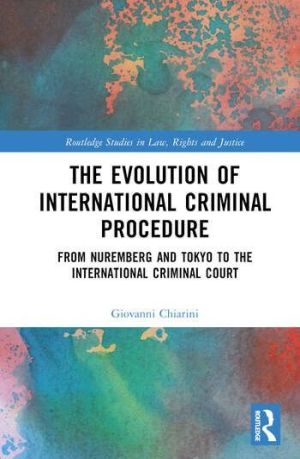
This book examines the evolution of international criminal procedure from the 1945–1946 Nuremberg and Tokyo trials to the present period. It is largely based on a normative-jurisprudential approach to the procedural rules, comparing both norms and case-law of the relevant courts and tribunals. The work shows the possibility of classifying “International Criminal Procedure” as an autonomous concept and field of study, which is constantly evolving due to the interaction of different legal cultures that characterize this subject matter and is derived from the varied procedures as established in both statutory law and jurisprudence. Far from being an autonomous entity, international criminal procedure now represents a great compromise between the legal traditions of different ICC member States. What emerges is the historical evolution of an international criminal procedure with a unique identity, a very real “third way” between the traditional dichotomy of Common Law and Civil Law, between the Anglo-Saxon and the European Roman-Law-oriented legal traditions.
The book will be of interest to academics, scholars and researchers working in the areas of International Criminal Law, Comparative Law, Criminal Procedure and Legal History, as well as judges and international legal professionals.